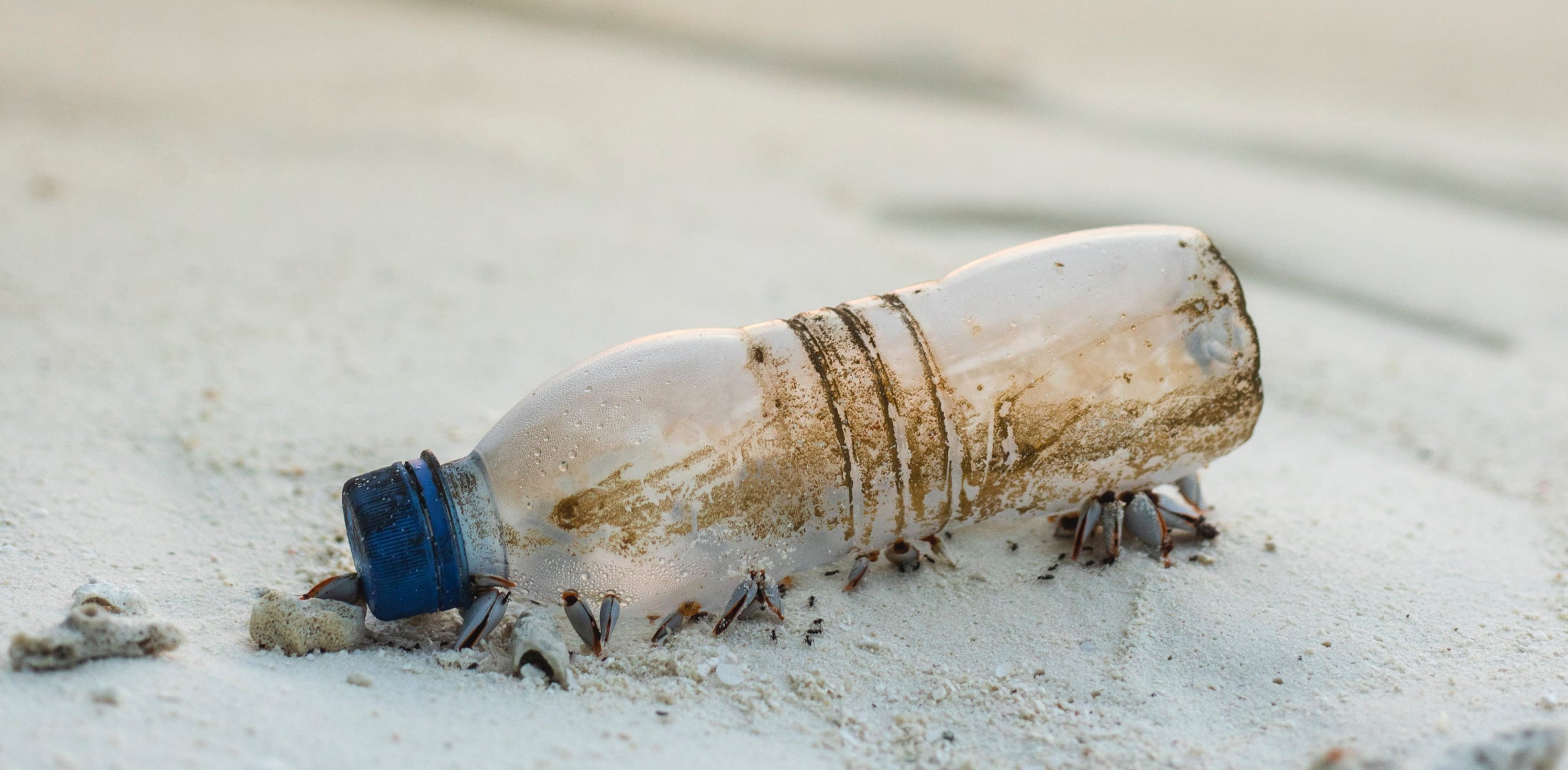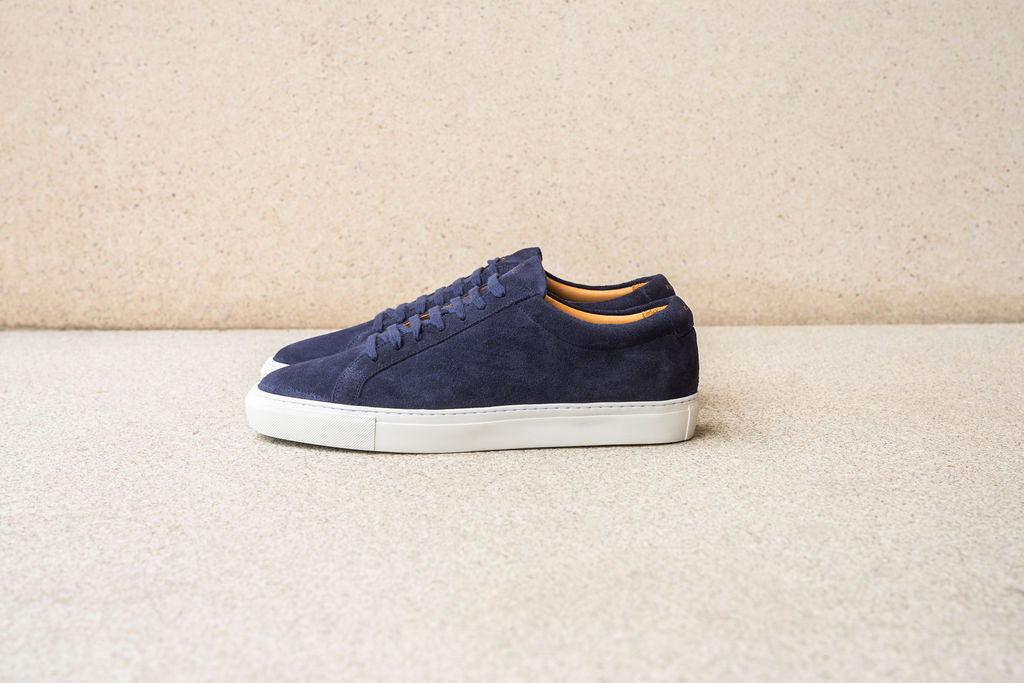
The Power of collective influence – Kulson’s Underwater Project
The threats to our Earth ecosystem are more relevant than ever. The evidence is overwhelming: climate change is an imminent threat, our food systems are under increasing strain, and our soils, waters, and species are threatened as never before.
Unfortunately, the global community has a long way to go to address this challenge, and government funding for the environment is variable even in the best of times. So it's up to us to take responsibility for the planet and drive positive change.
The founders of kulson care deeply about the environment and sustainability. That's why Benjamin and Jakob decided to launch the kulson Underwater Project at the same time as founding the fashion label.
"CLEAN WHITE SNEAKERS FOR A CLEAN BLUE OCEAN" IS THE PHILOSOPHY.
The project is aimed at ridding the oceans of plastic waste and raising awareness for the plastic problem in the oceans, because currently every year new record amounts of micro- and macroplastics are found in the oceans when samples are taken. In this context, it is only a logical conclusion that these plastic pieces are moving up the food chain creature by creature, and thus we are ultimately poisoning ourselves.
For the founders, the worst thing about this is not the fact that humans will poison themselves sooner or later, because at least we have ourselves to blame for this dilemma.
In the eyes of Benjamin and Jakob, the greatest injustice is that millions upon millions of sea creatures and other animals are perishing from this deadly plastic vortex, and they are not even a little bit to blame for this tragedy, because without humans they would never have known - at least with a very high probability - what plastic actually is.
Three hundred thousand dolphins and porpoises die every year because, among other things, they get caught in lost fishing nets that drift masterless in the sea. Over a million seabirds are killed each year by marine pollution, mistaking plastic particles for food and perishing miserably over time.
The WWF predicts that by 2050 there will be more plastic than fish in the ocean.
The original plan of the founding team was to start their own ocean cleaning initiatives and to remove trash from non-tourist beaches in self-initiated collection campaigns. Thus, for every pair of shoes sold, one pound of plastic would be collected from beaches and recycled.
However, at Project Evaluation, the constant push for maximum efficiency, effectiveness and transparency led to the decision to initially financially support outside organizations that can address the ocean plastic problem with greater effectiveness than the founding team could with their own hands.
The founders are concerned with the greatest possible impact and the most effective way to help, not with an image film. They want to make a difference.
In the long run, further and also own Ocean Cleanup initiatives are planned. In the initial phase of the project, however, it seemed more sensible to the brand to bundle resources in the best possible way and lead them to where major adjusting screws can be turned until the kulson company is able to do so itself.
Therefore, every kūlson sneaker is a part of the kūlson Underwater Project's and 4% of sales go to various environmental projects around the world. Additionally, a memory footbed made from recycled materials has been incorporated into the shoe.
Each pair of kulson sneakers sold thus actively contributes to the fight against plastic in the ocean.
One of these organizations is 1% for the Planet. It is a global movement that inspires businesses and individuals to support environmental solutions through annual memberships and daily actions. The organization advises on strategies, certifies donations and amplifies the impact of the network.
1% for the Planet was founded in 2002 by Yvon Chouinard (founder of Patagonia) and Craig Mathews (founder of Blue Ribbon Flies). The two successful entrepreneurs recognized the power of collective action to protect the environment.
They work with individuals and business people to identify environmental organizations that have the greatest impact and align with their own goals. When asked, they confirm that every dollar donated goes to a vetted, trusted non-profit organization. Members of this organization have spent hundreds of millions of dollars on the environment, and the nonprofit partners are doing hard work to restore our planet for the future.
The foundation of the 1% for the Planet network is the nonprofit partnership of its members. Business and individual members work directly with recognized nonprofit partners or provide financial donations, volunteer time, in-kind donations and other collaborations of shared value.
The network consists of more than 1,200 member companies, numerous individuals and thousands of nonprofit partners in more than 40 countries. The results of this initiative to save the environment are impressive.
Since its founding in 2002, the 1% for the planet network has already supported a wide variety of environmental organizations with more than $150 million.
Thriving partnerships help build longer-term support and greater impact. The core areas of focus for 1% for the Planet are climate, food, land, pollution, water and wildlife.
The kulson founders chose the element of water because the ocean holds a very special place for them. If we want to preserve the ocean and its natural beauty, drastic measures must finally be taken.
It was previously thought that because of the size of the ocean, the impact of dumping trash and litter into the sea would be minimal.
Since 71% of the earth is covered by water, people assumed that all pollutants would be sufficiently diluted and disappear.
So until the 1970s, it was common practice to intentionally dump chemicals and trash into the oceans. But as we now see, this belief has not been proven correct - quite the opposite. While all four oceans have now suffered from human consequence for centuries, the scale has accelerated rapidly in recent decades: Oil spills, toxic waste, and tons upon tons of plastic in the ocean have become the norm.
Entire floating islands made up of trash and growing in size have formed in the ocean. In the Pacific Ocean, for example, there is an island of trash twice the size of Texas. The North Pacific Gyre off the coast of California is the largest oceanic garbage patch in the world (Great Pacific Garbage Patch).
There, floating plastic outnumbers all marine life by six to one in close proximity.
Plastic is the greatest evil because it does not decompose easily and is often considered food by marine animals. The particles get smaller and smaller over time (microplastics) and thus penetrate deeper and deeper into our ecosystem until it eventually ends up on our plates.
Plastic deposits have the additional property of being able to absorb other toxic chemicals from the sea. Animals that mistake the plastic for food are thus poisoned on another level and carry this further.
In fact, plastic pollution is one of the most serious threats to the ocean. Plastic does not decompose, but only into smaller and smaller pieces, but thus in principle never finally disappears.
Our environment, as well as our economy, depends on global action to restore and maintain the quality of water on our planet. The ocean cannot and must not continue to serve as a landfill for human waste.
It's up to us to do something about it and everyone can contribute - start rethinking your plastic consumption, keep trash off the beaches and pick up that plastic straw or bottle cap the next time you trip over one barefoot on the beach!
Spread the word, stand up and do something about the plastic problem in our oceans.
You are unique.


